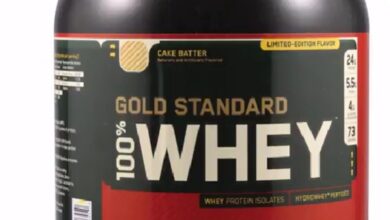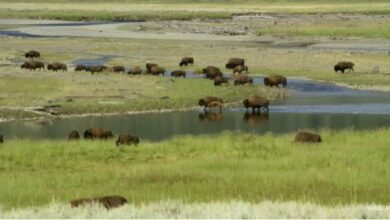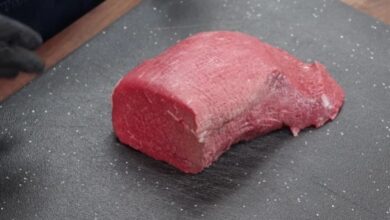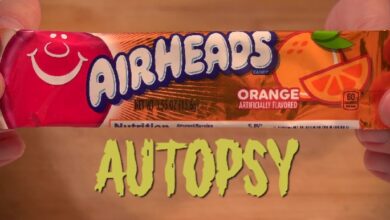Is Vanilla Extract Halal
Vanilla extract is a popular flavoring used in a variety of foods and beverages. However, its halal status is a topic of debate among Muslims due to the presence of alcohol used in its production. This article explores whether vanilla extract is halal, delving into the different perspectives and providing a detailed analysis based on Islamic principles and scholarly opinions.
Introduction
Vanilla extract is a staple in many kitchens, cherished for its ability to enhance the flavor of desserts, baked goods, and even savory dishes. Despite its widespread use, the question of whether vanilla extract is halal remains a point of contention within the Muslim community. The core of this debate revolves around the presence of alcohol in the extract, which is used as a solvent to draw out the vanilla flavor from the beans. Given the strict prohibition of alcohol in Islam, many Muslims are cautious about consuming products that contain even trace amounts of it. This article aims to clarify the halal status of vanilla extract by examining various scholarly opinions, the process of its production, and the principles of Islamic jurisprudence that apply to this issue.
What is Vanilla Extract?
Vanilla extract is a concentrated liquid made by soaking vanilla beans in a mixture of alcohol and water. The alcohol acts as a solvent, extracting the complex flavors from the vanilla beans. Typically, the extract contains around 35% alcohol by volume, which evaporates during cooking, leaving behind the distinctive vanilla flavor.
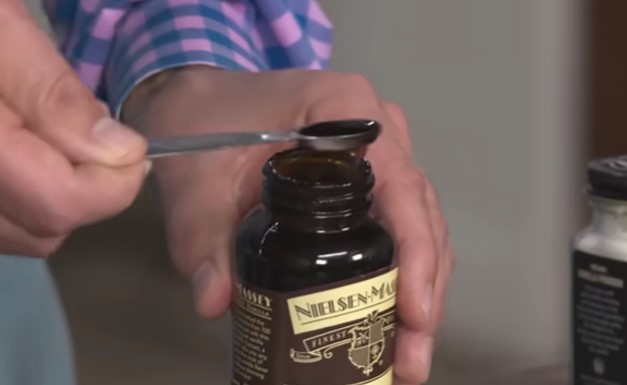
The Halal Debate
Arguments for Vanilla Extract Being Halal
- Transformation (Istihala): Some scholars argue that the alcohol in vanilla extract undergoes a transformation (istihala) during cooking or baking, where it evaporates, leaving no intoxicating effect. This process renders the product permissible (halal) as the intoxicating element is removed.
- Negligible Amount: Many ulema stress that the amount of alcohol in vanilla extract is minimal and not capable of causing intoxication. According to these scholars, the extract is used for flavor and not for its alcohol content, making it permissible.
- Halal Certification: Certain halal certification bodies, such as IFANCA and HFCE, have deemed vanilla extract halal based on their evaluation of the extraction and transformation process.
Arguments Against Vanilla Extract Being Halal
- Presence of Alcohol: Some scholars take a stricter stance, asserting that any product containing alcohol, regardless of the amount, is haram (forbidden). They argue that the prohibition of alcohol in Islam should be absolute, with no exceptions.
- Potential for Intoxication: While the alcohol content in vanilla extract is low, there is a theoretical risk of intoxication if consumed in large quantities. Some scholars recommend avoiding it to err on the side of caution.
- Availability of Alternatives: Non-alcoholic vanilla extracts are available, providing an option for Muslims who wish to avoid any potential issues related to alcohol consumption.
Frequently Asked Questions
Is vanilla extract halal if used in food preparation?
Vanilla extract can be halal if used in food preparation, provided that the alcohol content is minimal and not derived from non-halal sources like grapes or dates. The alcohol often evaporates during cooking, making it permissible for many Muslims.
Can vanilla extract with synthetic vanillin be halal?
Yes, synthetic vanillin, which mimics the natural compound found in vanilla beans, can be considered halal as long as it does not contain alcohol or other non-halal additives.
Is there a difference between vanilla flavoring and vanilla extract regarding halal status?
Vanilla flavoring can sometimes be alcohol-free and thus more likely to be halal compared to vanilla extract, which typically contains alcohol. Always check the ingredient list for specific details.
How can Muslims ensure the vanilla extract they buy is halal?
Muslims should look for halal certification on the product or contact the manufacturer to confirm that the vanilla extract does not contain alcohol or any non-halal ingredients.
Is it possible to find alcohol-free vanilla extract?
Yes, there are alcohol-free vanilla extracts available, often labeled as “halal vanilla extract” or made with glycerin or propylene glycol instead of alcohol.
Are all types of alcohol considered haram in vanilla extract?
In general, any type of alcohol used in vanilla extract can be considered haram. However, some Islamic scholars may allow it if the alcohol content is minimal and evaporates during cooking.
Does the country of origin affect the halal status of vanilla extract?
The country of origin can affect the halal status, as regulations and production methods vary. It is advisable to buy from countries with strict halal certification processes or directly look for certified products.
Can vanilla beans themselves be considered halal?
Yes, vanilla beans are naturally halal. The concern arises during the extraction process, particularly if alcohol is used.
Is homemade vanilla extract using alcohol halal?
Homemade vanilla extract made with alcohol is generally not considered halal. Using alternatives like glycerin or propylene glycol can make it halal.
Is there a difference in the halal status of vanilla extract between Sunni and Shia interpretations?
Both Sunni and Shia interpretations may consider vanilla extract halal if the alcohol content is minimal and evaporates during cooking. However, specific rulings can vary, so it’s best to consult with a knowledgeable scholar.
Can Muslims consume baked goods with vanilla extract?
Baked goods containing vanilla extract can be halal if the alcohol content is minimal and evaporates during baking. Checking the halal certification of the ingredients used is recommended.
Is bourbon vanilla extract halal?
Bourbon vanilla extract, which typically contains alcohol, is generally not considered halal.
Are there specific brands of vanilla extract that are known to be halal?
Some brands offer halal-certified vanilla extract. It’s important to check the packaging for halal certification or contact the manufacturer directly.
Can vanilla extract be used in non-alcoholic recipes?
Yes, vanilla extract can be used in non-alcoholic recipes, but the halal status depends on whether the extract itself is free from alcohol.
Is it permissible to consume small amounts of alcohol in vanilla extract?
This is a debated topic. Some scholars may permit it if the alcohol evaporates during cooking and does not intoxicate, while others strictly prohibit any form of alcohol consumption.
Are there any substitutes for vanilla extract that are always halal?
Yes, vanilla powder and alcohol-free vanilla flavorings are good substitutes that are typically considered halal.
Conclusion
The halal status of vanilla extract is nuanced, with valid arguments on both sides of the debate. Many scholars and halal certification bodies consider vanilla extract halal due to the minimal amount of alcohol and the process of istihala. However, some take a more cautious approach, advising Muslims to avoid it due to the presence of alcohol. Ultimately, it is essential for individuals to make informed decisions based on their understanding of Islamic teachings, personal values, and the guidance of knowledgeable scholars.
Read also: Is Ice Cream Halal

